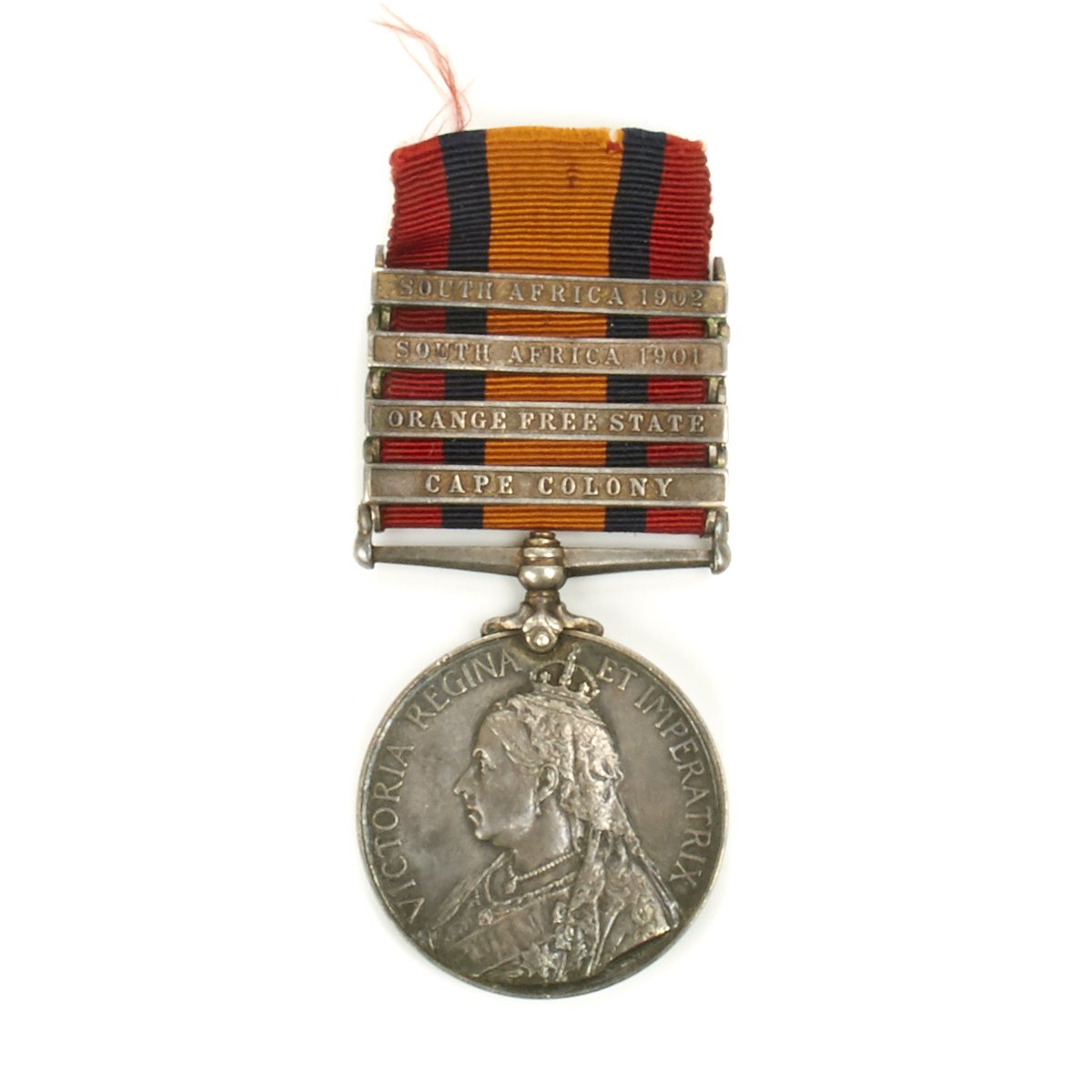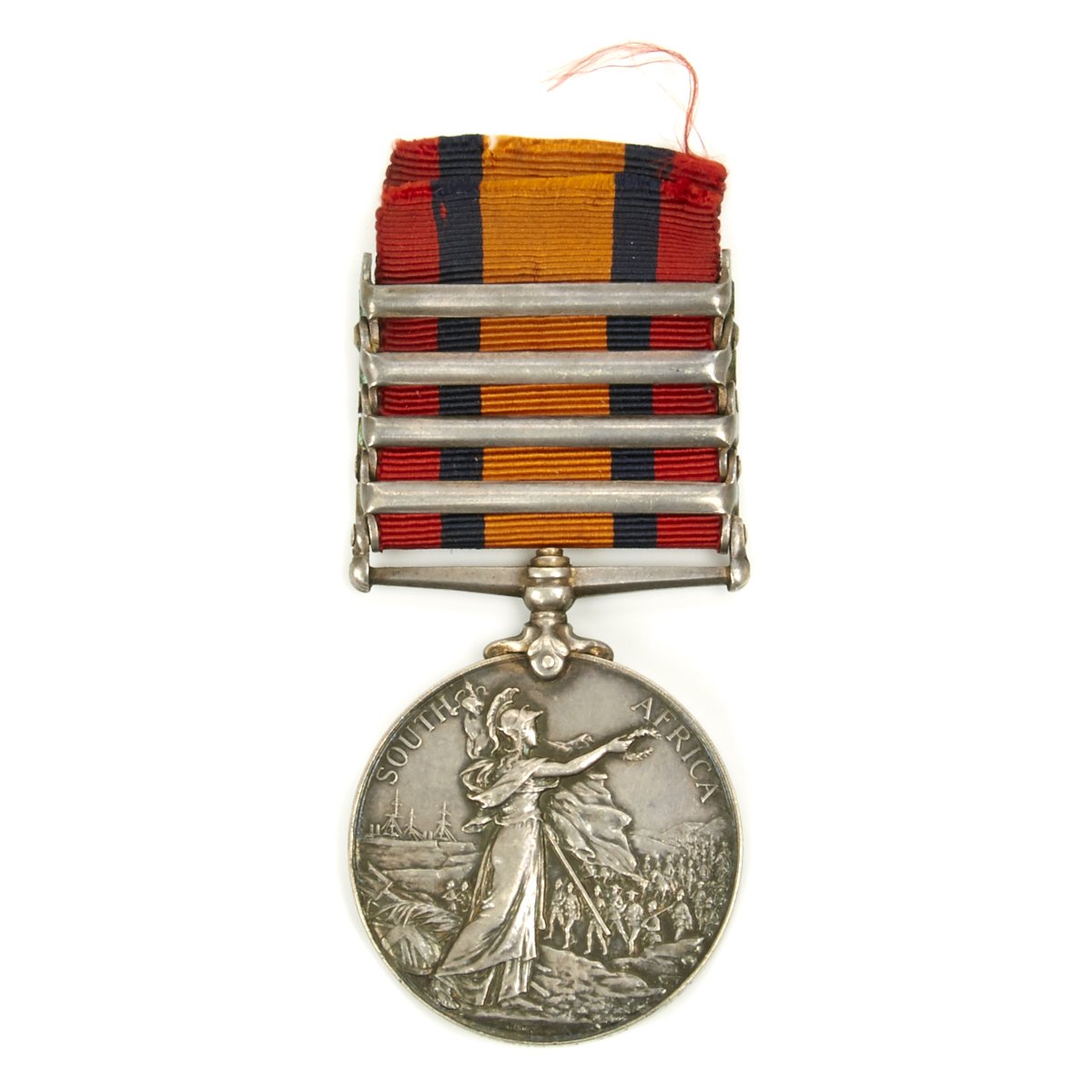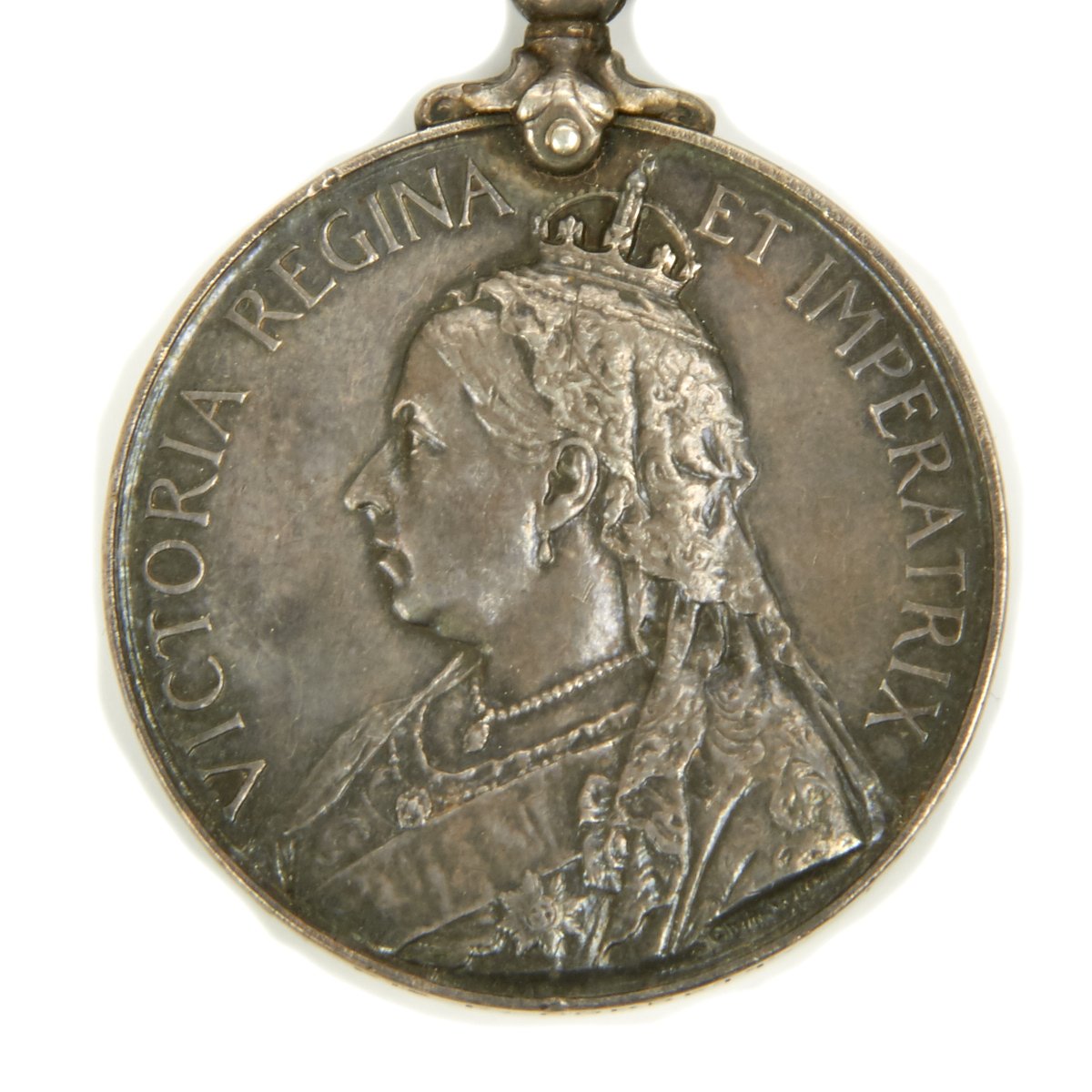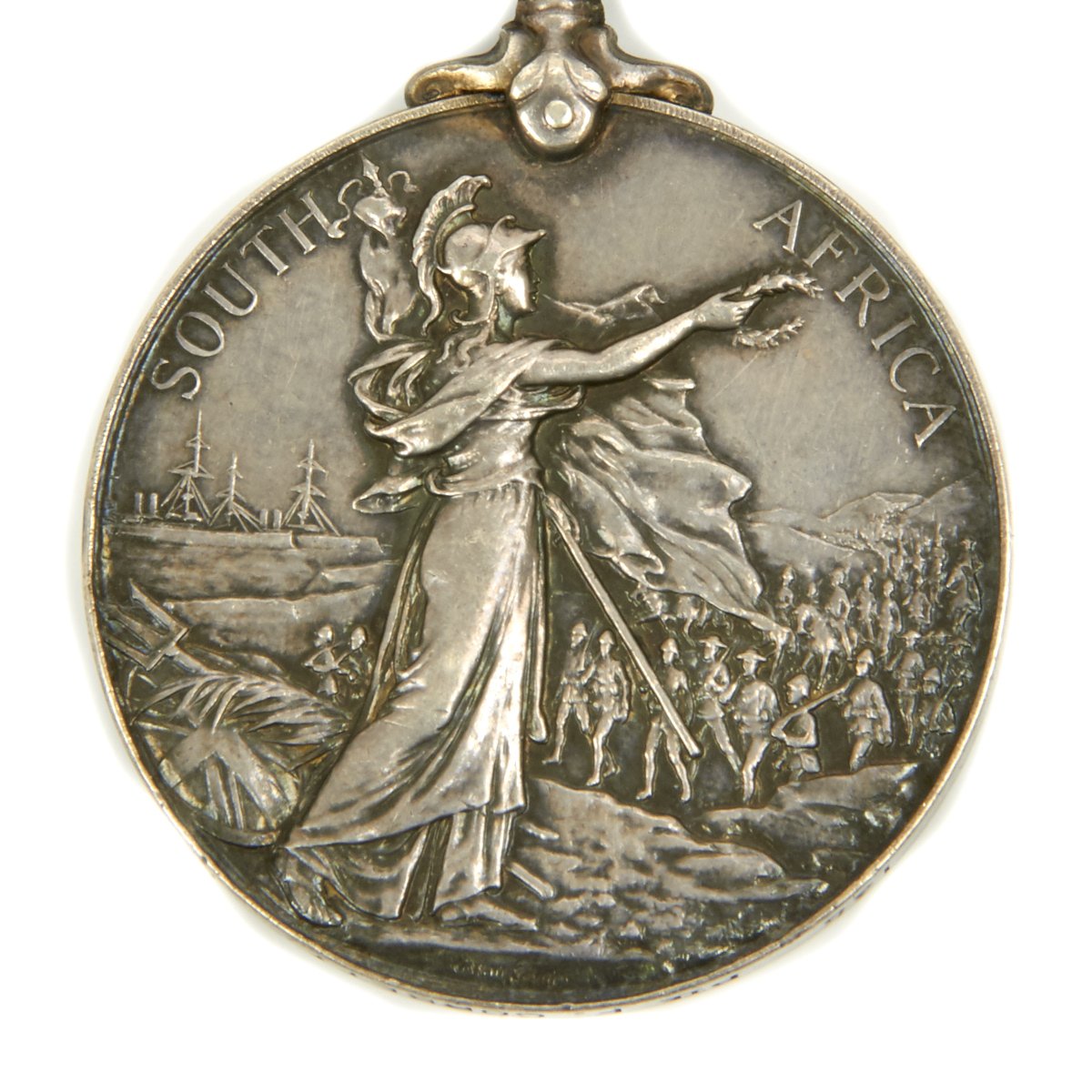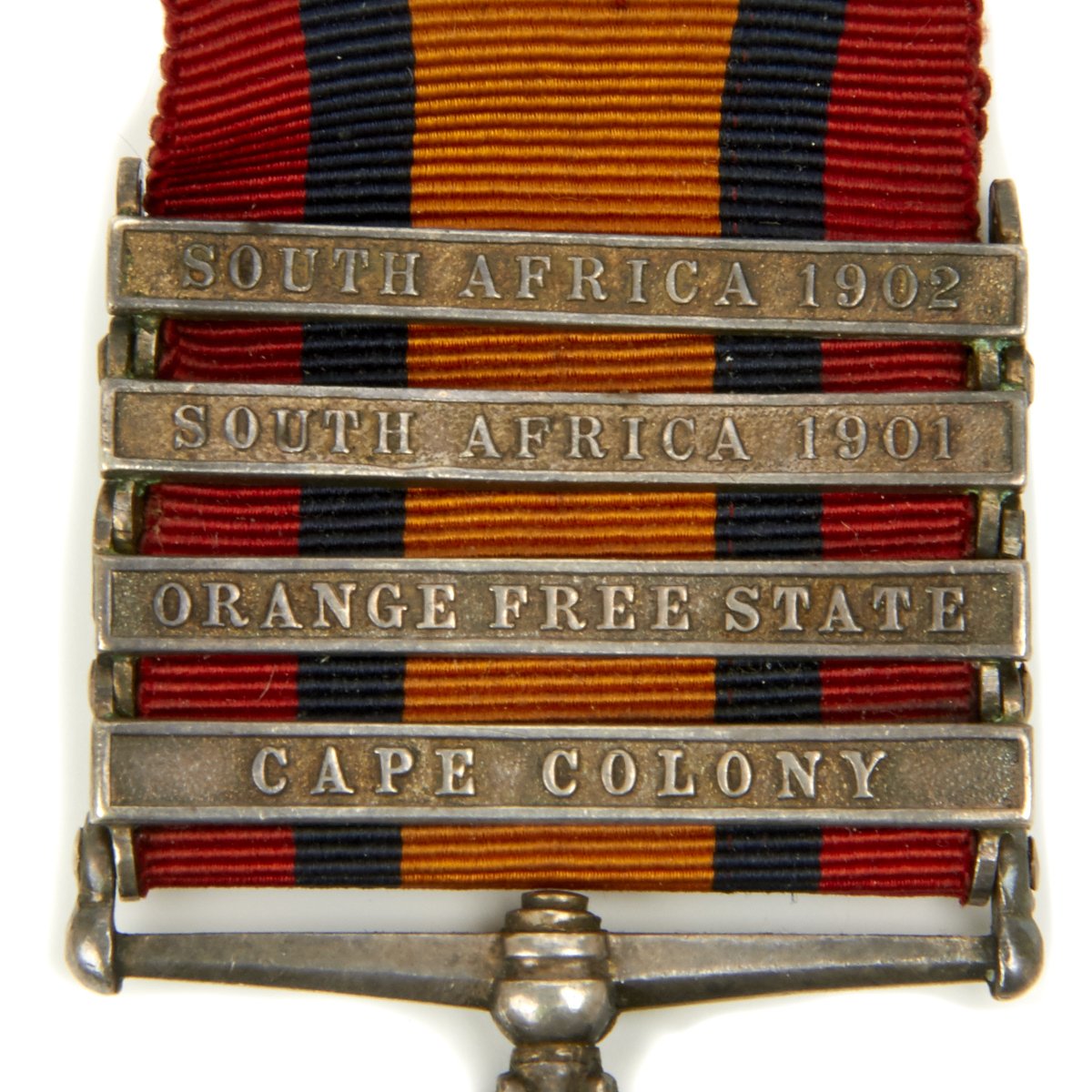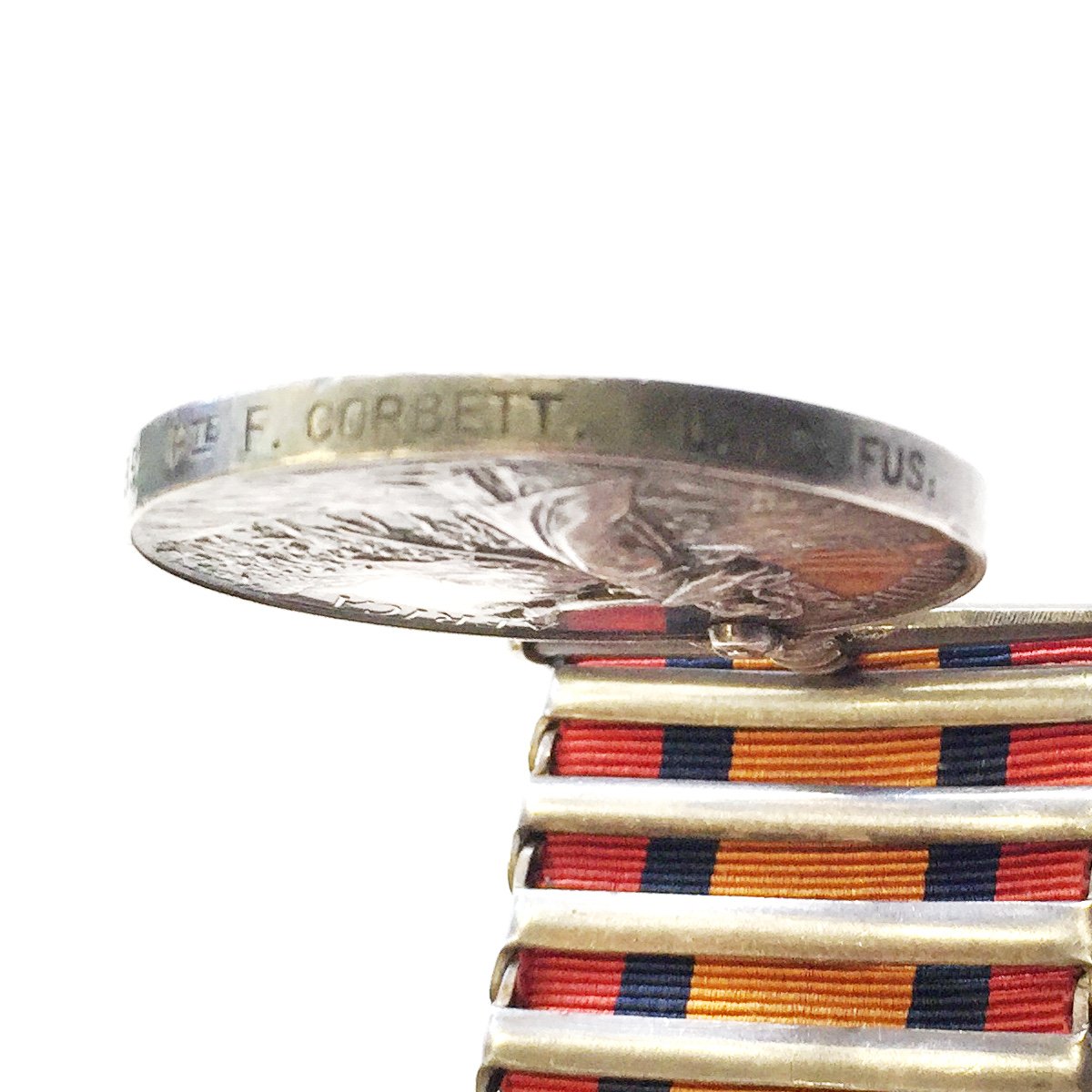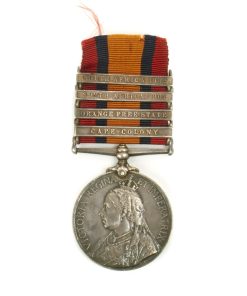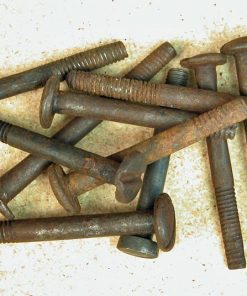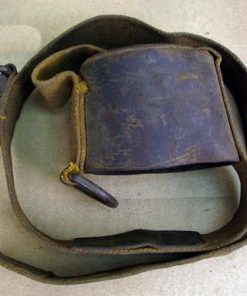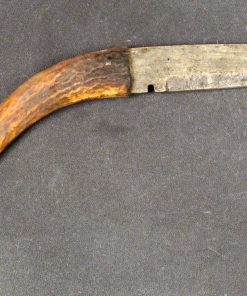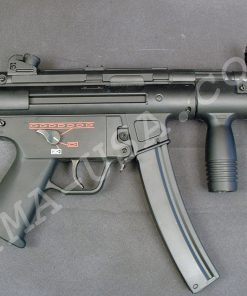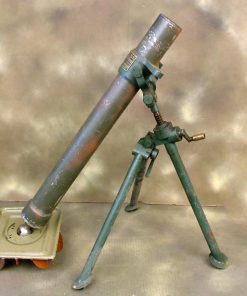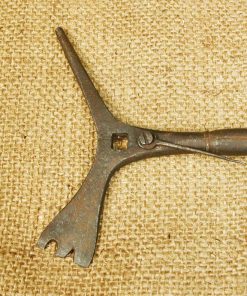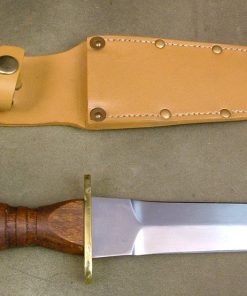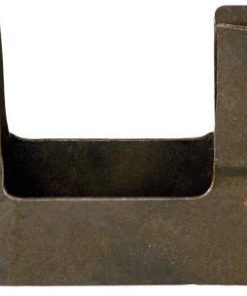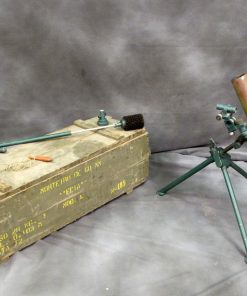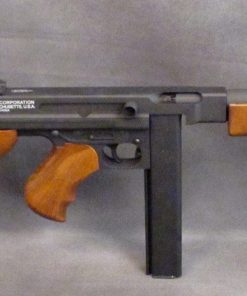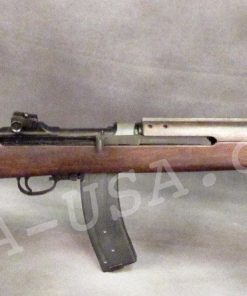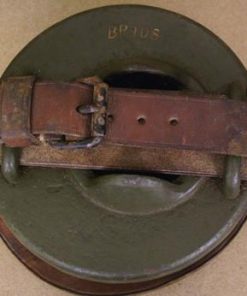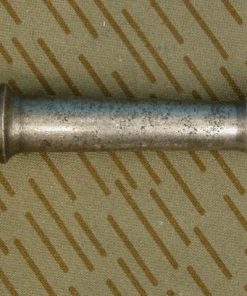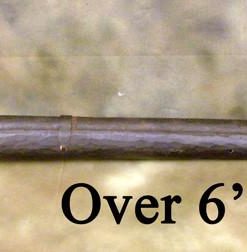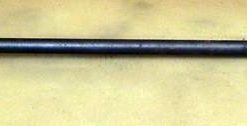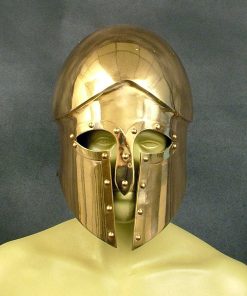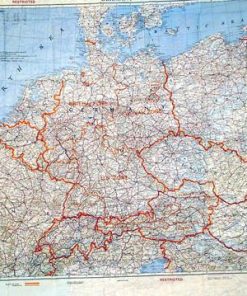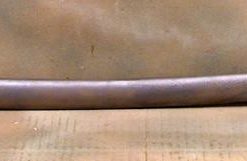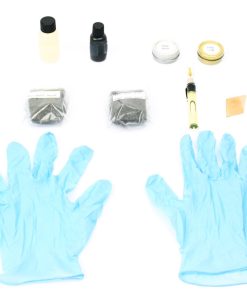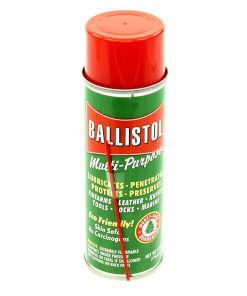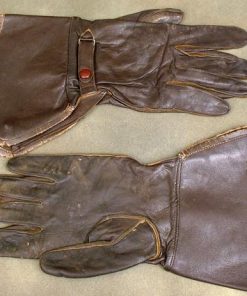Original British Second Boer War Named Queen’s South Africa Medal with 4 Clasps Original Items
$ 295,00 $ 118,00
Original Item: One-of-a-kind. One of the most-collected Victorian period medals is the Queens South Africa Medal (QSA), awarded to approximately 178,000 British Army, Royal Navy and colonial troops (Australia, Canada, New Zealand, India and South Africa) who served in the Boer War in South Africa between October 11, 1899, and May 31, 1902.
The Queens South Africa Medal provides the collector an excellent opportunity to study the Boer War through the individuals who participated in it. Because nearly each example is inscribed around the rim with the soldiers name, rank and unit, the collector can research individuals war records and regimental activities.
The majority of the British regiments and corps participated in the Boer War, as well as large contingents of the Royal Navy and Royal Marines. Furthermore, the multitude of Colonial and local units were also awarded this medal. This, in addition to the variety of clasps issued, produced an area of great diversity to fascinate the collector.
The QSA was minted in both silver and bronze. Measuring 36mm in diameter, it is mounted on a swiveling suspension with a double-toe claw. The obverse depicts the veiled head of Queen Victoria below the legend, VICTORIA REGINA ET IMPERATRIX. The reverse depicts battleships standing offshore a coastal landscape where an advancing army column approaches the figure of Britannia who is holding a flag and offering a wreath, all below the legend SOUTH AFRICA.
This example is known as a Type III. The third type reverse was minted without dates. Britannias wreath points towards the letter F of AFRICA.
The second obvious factor determining value of a QSA are the types of clasps adorning the medal. There were 26 different clasps available for issue with the QSA that can be divided into three categories: state, battle and date.
State clasps were issued for service within a particular region when no battle clasp(s) was issued to the recipient for a specific action within that state. This QSA has the following State clasps:
Cape Colony Awarded to troops serving in Cape Colony between October 11, 1899, and May 31, 1902
Orange Free State Awarded to troops serving in Orange River Colony any time from February 28, 1900, to May 21, 1902
Finally, there were two date clasps awarded for those who served but were not eligible for the Kings Medal. This QSA bears both:
South Africa 1901
South Africa 1902
This medal is nicely named to include the soldiers roll number, initial of first name, surname, rank and unit. It reads:
135 F. CORBETT LANC FUS
Corbett was a Lance Corporal in the Fusiliers. A very nice example of a rare medal, named and complete with 4 clasps.
History of the Boer Wars:
The Boer Wars is the name used to refer to the armed conflicts in South Africa between descendants of Dutch settlers (the Boers) and British colonists. Following the first Boer War of 1880-81, the United Kingdoms Prime Minister, William Gladstone, granted the Boers self-government in the Transvaal.
However, the Boers, under the leadership of Paul Kruger, resented the policies of Colonial Secretary Joseph Chamberlain and High Commissioner and Governor-General of the Cape Alfred Milner. Fearing the Transvaal would be denied independence, the Boers acquired military equipment from Germany. Between October 1899 and January 1900, Boer insurgents conducted a series of successful raids across the Transvaal border into the Cape Colony and Natal. Although the Boers only fielded 88,000 soldiers, they were able to successfully besiege the British garrisons at Ladysmith, Mafeking and Kimberley.
After Army reinforcements arrived in South Africa in 1900, British command launched a series of counter offensives to relieve the garrisons. In addition, British forces seized control of the Boer capital, Pretoria.
For the following 21 months, bands of Boer commandos conducted a series of bitter raids against isolated British troops. Lord Kitchener, the Chief of Staff in South Africa, reacted by destroying Boer farms and moving civilians into prison camps. Leading Liberal politicians (and most of the independent Labour Party) strongly opposed British actions in South Africa calling them the worst excesses of imperialism.
Finally, in May 1902, a peace was achieved with the signing of the Treaty of Vereenigin. The settlement dissolved the Boer Republics of Transvaal and the Orange Free State. However, the British conceded to the Boers £3 million for restocking and repairing farm lands and promised eventual self-government (that was finally granted in 1907).
Fast Shipping with Professional Packaging
Thanks to our longstanding association with UPS FedEx DHL, and other major international carriers, we are able to provide a range of shipping options. Our warehouse staff is expertly trained and will wrap your products according to our exact and precise specifications. Prior to shipping, your goods will be thoroughly examined and securely secured. We ship to thousands clients each day across multiple countries. This shows how we're dedicated to be the largest retailer on the internet. Warehouses and distribution centres can be located throughout Europe as well as the USA.
Note: Orders with more than one item will be assigned a processing date depending on the item.
Before shipping before shipping, we'll conduct a thorough inspection of the items you have ordered. Today, the majority of orders will be delivered within 48 hours. The delivery time will be between 3-7 days.
Returns
The stock is dynamic and we cannot completely manage it because multiple stakeholders are involved, including our factory and warehouse. So the actual stock may alter at any time. It's possible that you may not receive your order once the order has been made.
Our policy is valid for a period of 30 days. If you don't receive the product within 30 days, we are not able to issue a refund or an exchange.
You can only return an item if it is unused and in the same state as the day you received it. You must have the item in its original packaging.
Related products
Uncategorized
Uncategorized
Uncategorized
Uncategorized
Uncategorized
Uncategorized
Uncategorized
Uncategorized
Uncategorized
Australian WWII Owen MK1 Machine Carbine SMG Custom Fabricated Replica with Sling Original Items
Uncategorized
Uncategorized
Uncategorized
Uncategorized
Uncategorized
Uncategorized
Uncategorized
